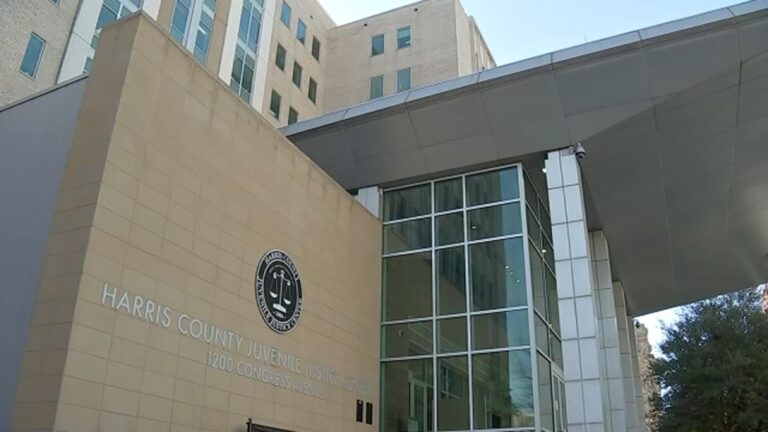Houston Launches Innovative Program to Combat Youth Violence
A Holistic Approach to Reducing Youth Crime in Houston
In response to the escalating rates of violent crime among young residents, Houston city leaders have introduced a comprehensive initiative designed to curb youth violence through prevention, intervention, and community support. This forward-thinking plan fosters collaboration among law enforcement agencies, educational institutions, social service providers, and grassroots organizations to build a robust safety net for vulnerable youth. Central to the strategy are expanded mentorship opportunities, engaging after-school programs, and enhanced mental health services tailored to the unique needs of young Houstonians.
Emphasizing early engagement and community-driven solutions, the initiative includes:
- Round-the-clock Youth Resource Centers offering counseling and secure environments
- Workforce development and apprenticeship schemes aimed at economic empowerment
- Reinforced neighborhood watch programs to boost vigilance and rapid response
- School partnerships integrating violence prevention education into curricula
Utilizing a data-centric model, the city will monitor program effectiveness through clear metrics, ensuring that resources are directed to communities with the greatest need.
| Program | Primary Objective | Target Demographic |
|---|---|---|
| Guiding Lights Mentorship | Personal Growth and Development | Adolescents (13-18 years) |
| NextGen Skills Academy | Vocational Training | Young Adults (16-24 years) |
| Mindful Spaces Initiative | Mental Health Assistance | All Age Groups |
| Neighborhood Guardians | Community Safety | Local Residents |
Empowering Communities as a Pillar of Crime Prevention
Recognizing that sustainable reductions in youth violence require grassroots involvement, Houston’s new program actively engages community members, faith-based groups, and neighborhood coalitions. These partnerships work closely with law enforcement to establish a layered support system that addresses the underlying causes of violence rather than merely responding to incidents. By nurturing trust and open dialogue, the initiative empowers residents to take ownership of their neighborhood’s safety and well-being.
The program promotes inclusivity and accessibility through:
- Community listening sessions to incorporate local perspectives and concerns
- Focused outreach efforts targeting parents, educators, and youth advocates
- Transparent data exchange between police and community groups to inform adaptive strategies
| Program | Focus Area | Anticipated Impact |
|---|---|---|
| Connect & Mentor | Youth Guidance | Lowered Repeat Offenses |
| Safe Neighborhood Patrols | Community Surveillance | Enhanced Local Security |
| Career Pathways | Employment Training | Increased Job Placement |
Boosted Investment in After-School and Mentorship Programs
To address the critical hours when youth are most vulnerable, Houston has allocated substantial funding to expand after-school initiatives and mentorship programs. These investments aim to provide safe, nurturing environments where young people can access academic support, creative outlets, and guidance from trained mentors dedicated to fostering positive life skills. Research shows that such programs significantly reduce the likelihood of youth engaging in violent behavior by promoting resilience and leadership.
The budget prioritizes equitable distribution across Houston’s diverse neighborhoods, ensuring broad accessibility and inclusivity. Key funding allocations include:
- Extended hours for community centers to accommodate working families
- Specialized training for mentors and program coordinators
- Investment in resources such as arts, sports, and technology equipment
- Scholarships and incentives to encourage youth participation
| Program Component | Annual Funding (in millions) | Projected Beneficiaries |
|---|---|---|
| After-School Engagement | 3.5 | 6,000+ Youth |
| Mentor Development | 1.7 | 300 Mentors |
| Community Outreach Programs | 1.0 | 15 Neighborhoods |
This strategic reinvestment aims not only to curb violent incidents but also to strengthen community ties and expand opportunities for Houston’s youth.
Unified Efforts Between Law Enforcement and Community Groups
Experts and community advocates stress that a collaborative approach is essential to effectively reduce youth violence. By pooling resources and expertise, law enforcement agencies and local organizations can jointly develop proactive programs that engage at-risk youth before crises occur. This partnership underscores the importance of mentorship, educational support, and accessible mental health care in disrupting cycles of violence.
True collaboration demands ongoing commitment and shared responsibility. Houston police officers are receiving training in cultural sensitivity and trauma-informed care, while community groups contribute deep knowledge of neighborhood dynamics and youth challenges. Together, these efforts aim to foster safer environments through prevention rather than reactive enforcement.
- Collaborative mentorship programs: pairing officers with community leaders to build trust
- After-school engagement: offering constructive activities and skill-building opportunities
- Mental health partnerships: linking youth with local clinics for timely support
| Participant | Role | Contribution |
|---|---|---|
| Houston Police Department | Enforcement & Training | Community policing and trauma-informed approaches |
| Nonprofit Organizations | Support & Education | Outreach initiatives and mentorship programs |
| Educational Institutions | Prevention & Resources | After-school programs and counseling services |
Looking Ahead: Building Safer Futures for Houston’s Youth
As Houston embarks on this ambitious campaign to reduce youth violence, the combined efforts of city officials, community members, law enforcement, and local organizations will be critical to its success. By focusing on prevention, intervention, and comprehensive support, the initiative aims to foster safer neighborhoods and open doors to promising futures for young residents. Ongoing collaboration and dedication will be vital in addressing the complex social factors that contribute to youth violence and in cultivating resilient, thriving communities. Updates on the program’s progress will be closely monitored and shared to ensure transparency and continuous improvement.




